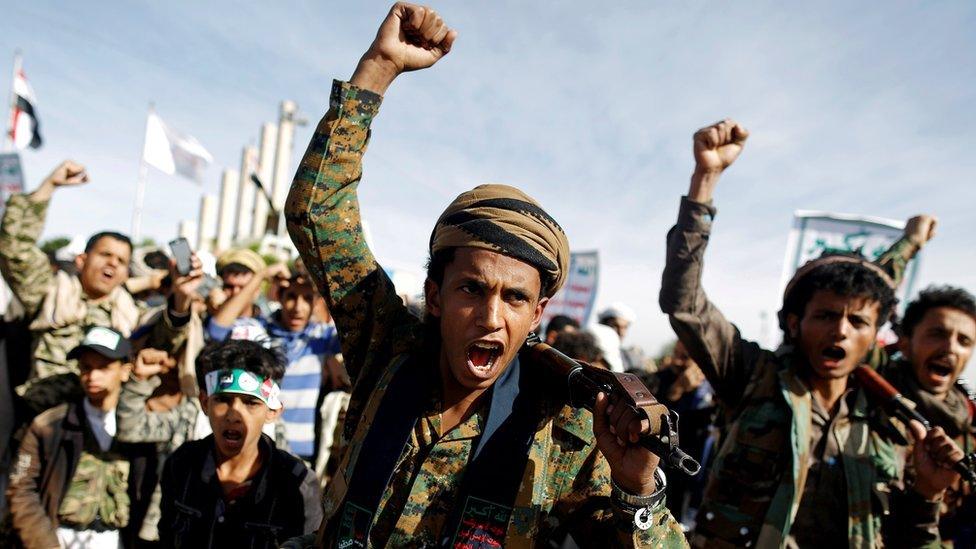US bombers target underground Houthi weapon sites in Yemen
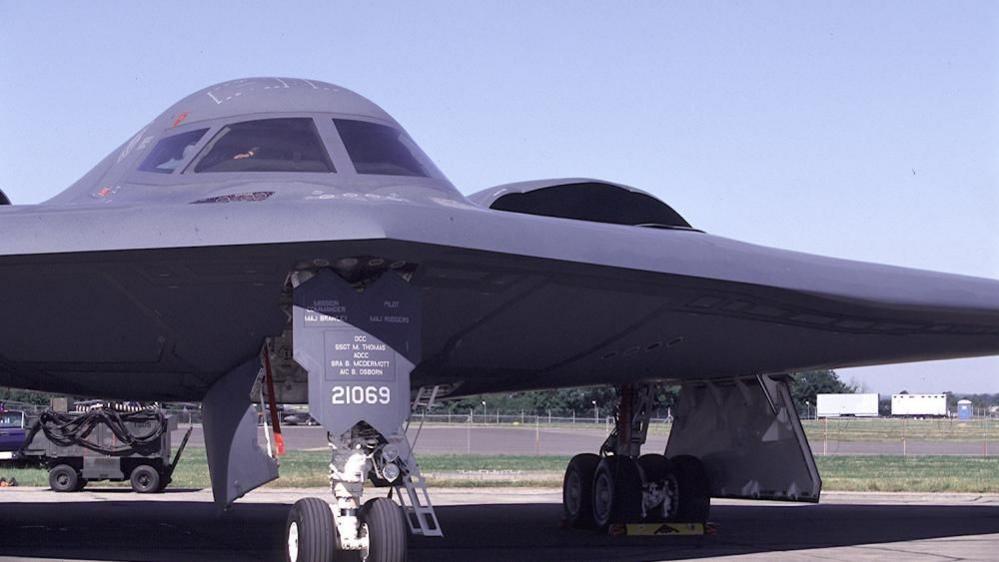
The US said long-range B2 stealth bombers were involved in the mission. (File photo)
- Published
The US says it has carried out "precision strikes" against five weapons storage locations in areas of Yemen controlled by the Houthi movement.
Defence Secretary Lloyd Austin said B-2 Spirit stealth bombers were part of the operation that targeted hardened underground facilities housing missiles and other munitions that the Iran-backed group had used to attack civilian and military ships.
The strikes demonstrated the ability of the US to hit facilities that adversaries sought "to keep out of reach", he added.
Houthi-run Al-Masirah TV said the strikes targeted six areas in and around the capital, Sanaa, and two near the northern city of Saada. It did not report any casualties.
US Central Command, which oversees US military operations in the Middle East, also said there were no initial indications of civilian casualties from the strikes.
Several of those areas mentioned by Al-Masirah host military bases where analysts have said satellite imagery showed the Houthis were creating or enlarging underground facilities, external, including the Television area in the north of Sanaa and al-Hafa to the south-east.
Mohammed al-Bukhaiti, a Houthi political official, wrote on X that the attacks would “only increase our determination to continue our military operations in support of Gaza”.
The Houthis have repeatedly targeted commercial shipping in the Red Sea and Gulf of Aden since November 2023. They have sunk two vessels, seized a third of targeted ships and killed crew members.
They say they are acting in support of the Palestinians in the war between Israel and Hamas in the Gaza Strip. They have claimed - often falsely - that they are targeting ships only linked to Israel, the US or the UK.
They have not been deterred by the deployment of Western warships to protect merchant vessels or by US and British air strikes on territory they control in north-western Yemen.
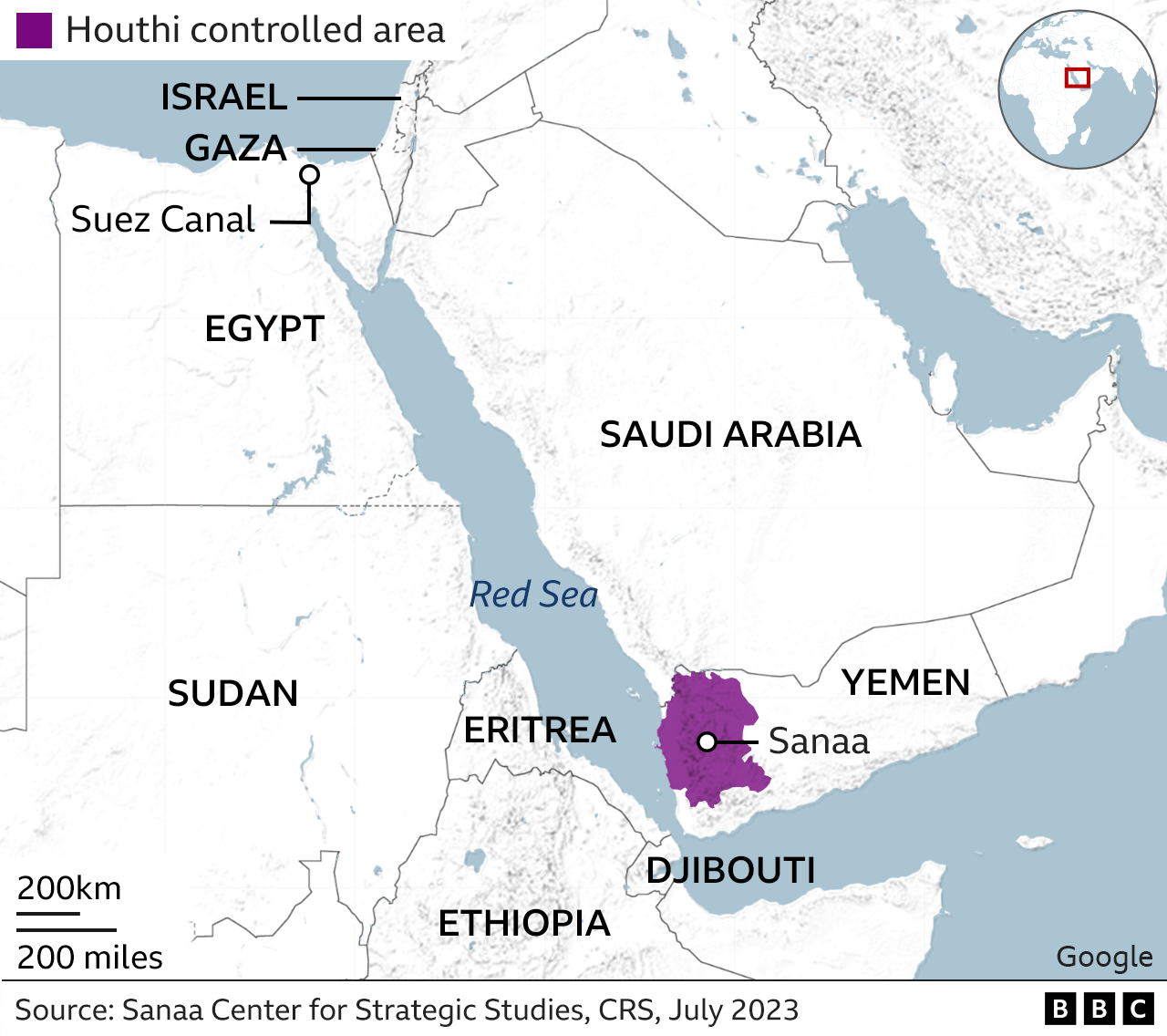
The Houthi attacks in the Red Sea have forced major shipping companies to avoid the Red Sea and the Suez Canal, impacting international trade.
Austin said in a statement: "At the direction of President Biden, I authorised these targeted strikes to further degrade the Houthis' capability to continue their destabilising behaviour and to protect and defend US forces and personnel in one of the world's most critical waterways."
He added that the US would "continue to make it clear" to the Houthis that there would be "consequences for their illegal and reckless attacks".
In September, the Pentagon said the Houthis had launched "a complex attack" on US Navy ships in the region, though all of the weapons launched were shot down.
As well as the attacks on ships in the Red Sea, the Houthis have fired several missiles and drones at Israel directly.
In July, a drone launched from Yemen struck Tel Aviv, killing one person. In September, the group fired several missiles at Israel, including one that targeted Israel's main airport.
Both times Israel responded by attacking sites in Houthi-controlled Yemen, including fuel tanks and other infrastructure at the Red Sea port of Hudaydah.
The Houthis are part of a network of armed groups in the Middle East backed by Iran that includes Hezbollah in Lebanon and Hamas in Gaza.
Related topics
- Published4 October 2024
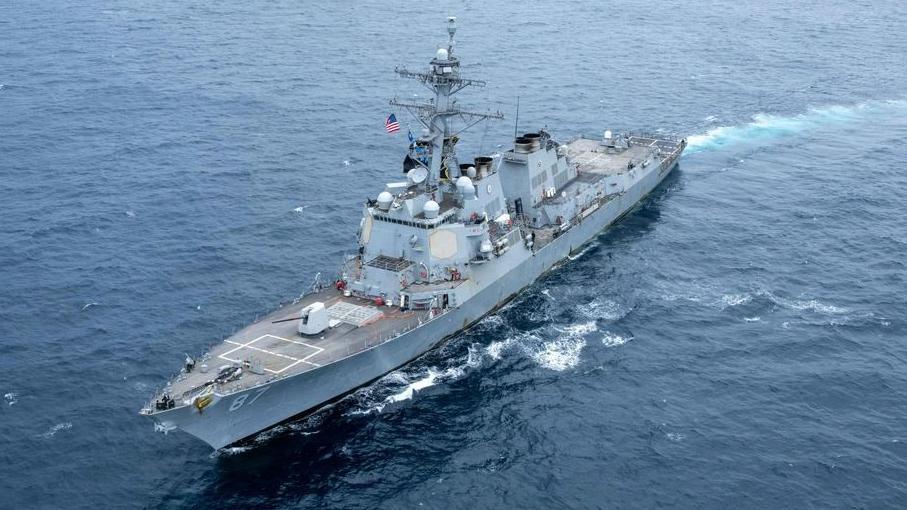
- Published5 February 2024
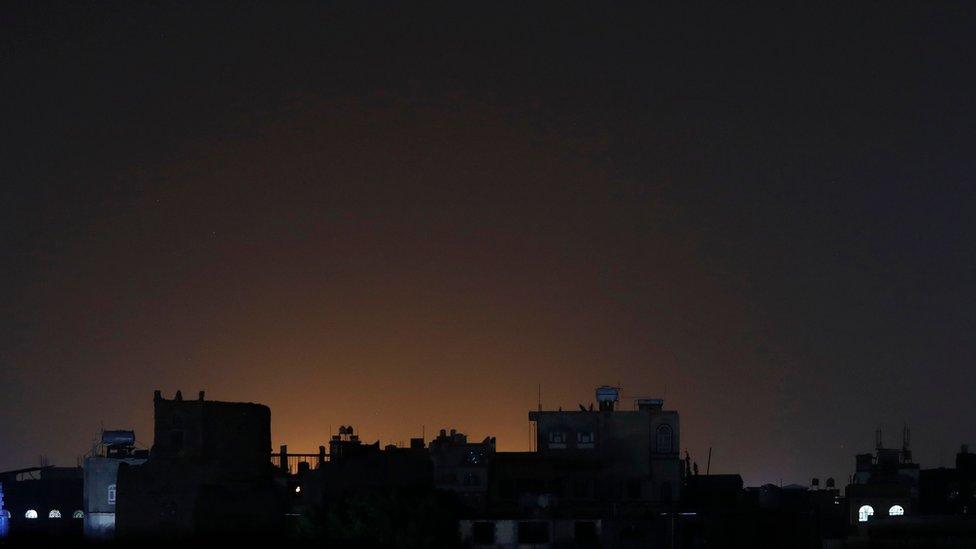
- Published25 March
